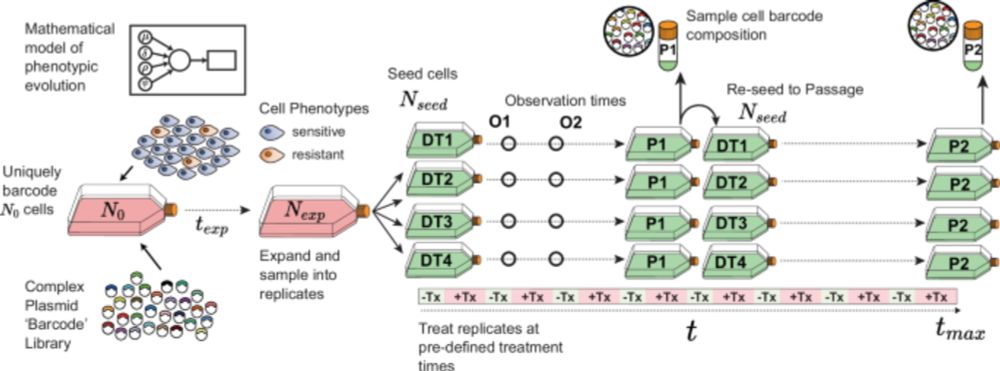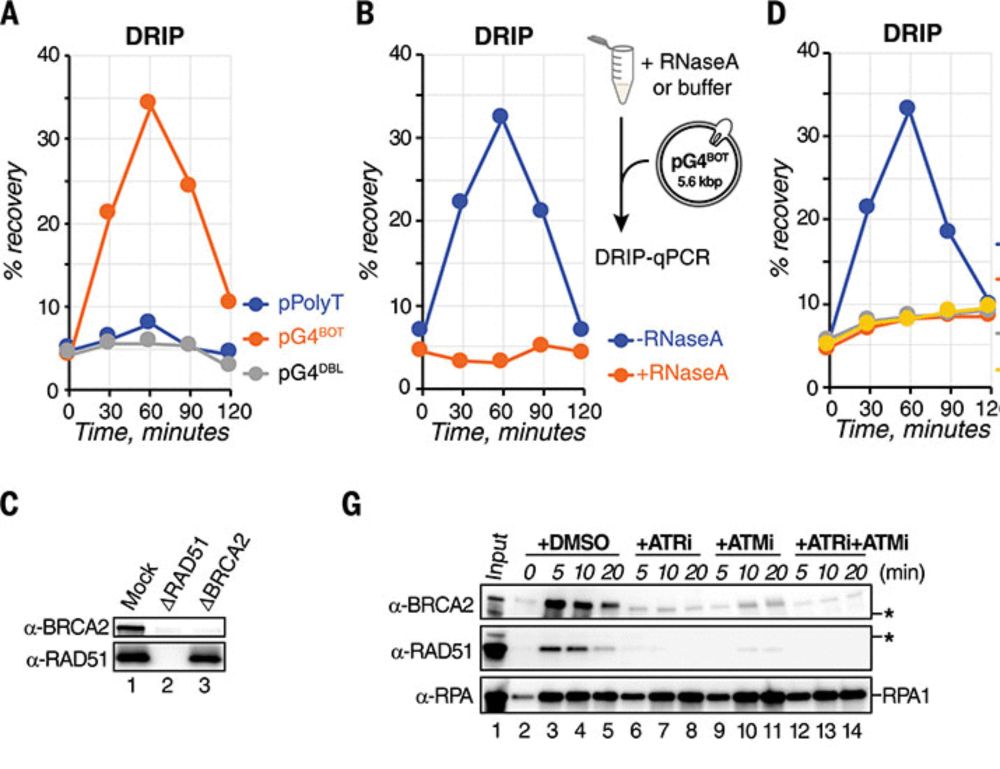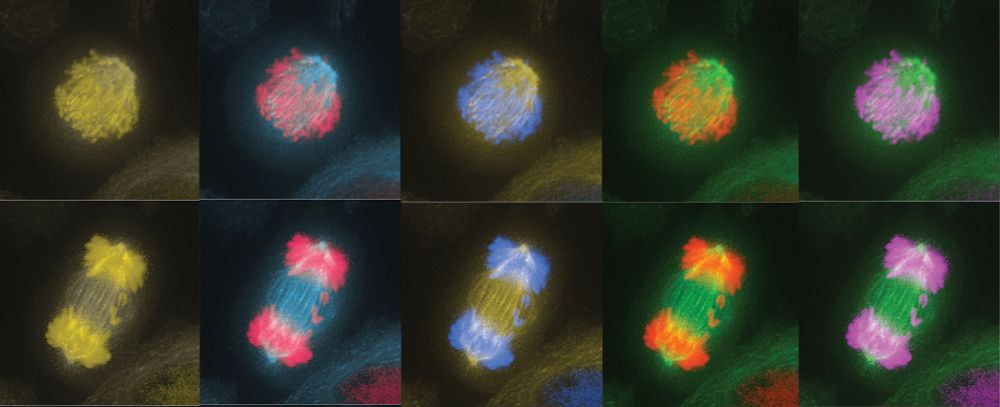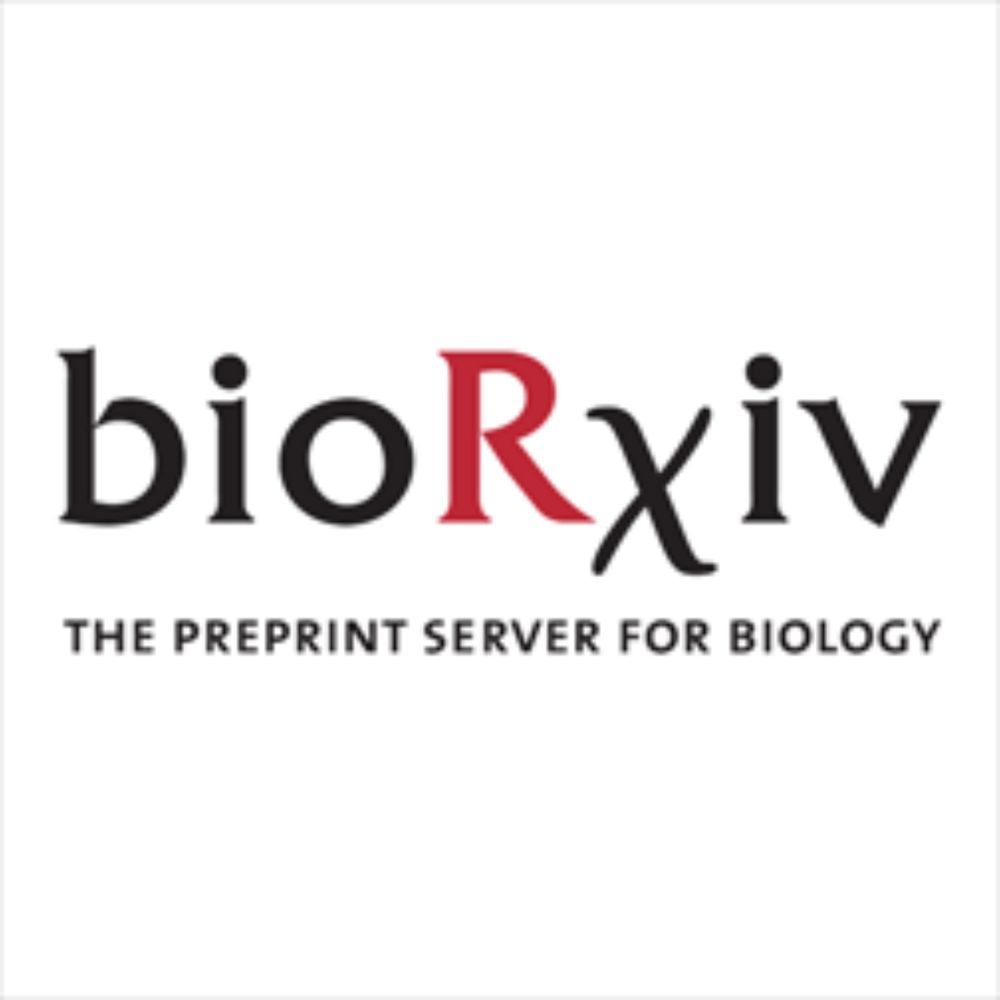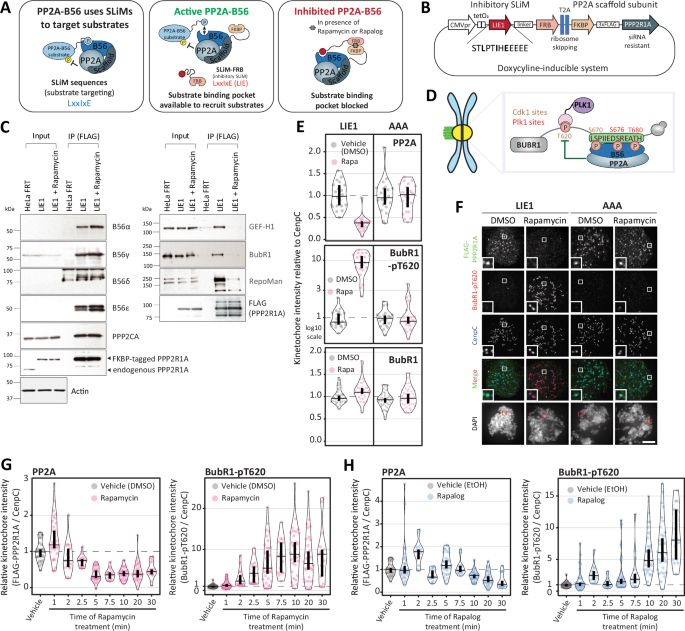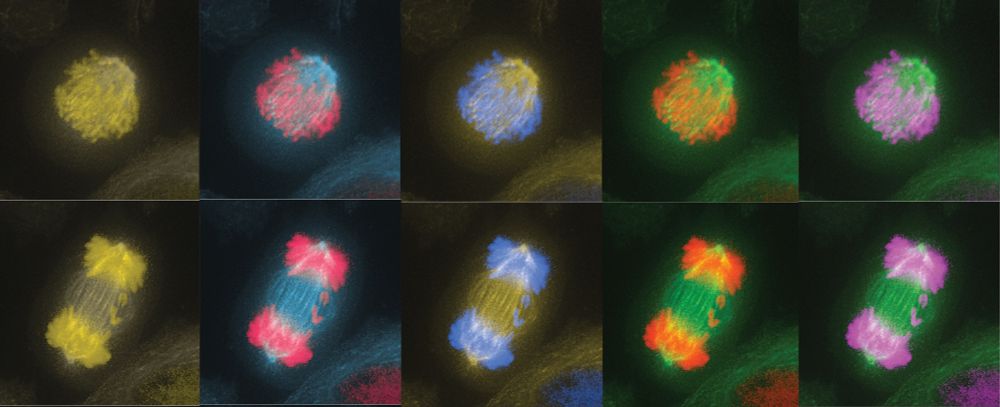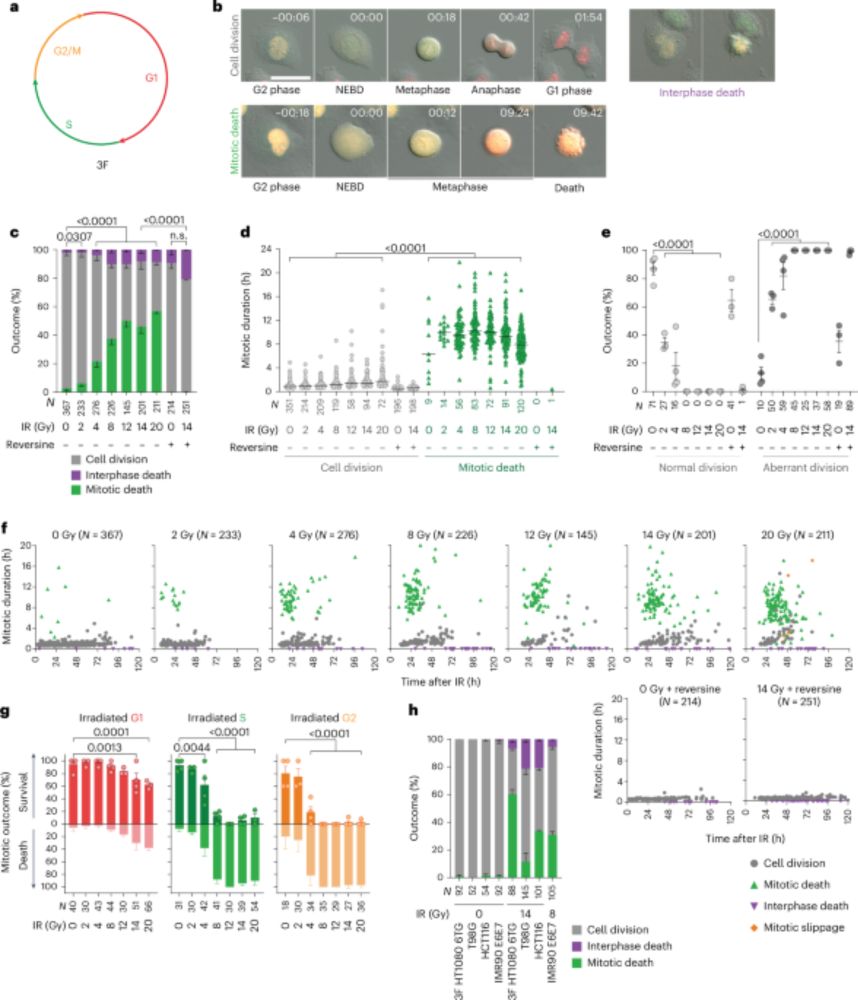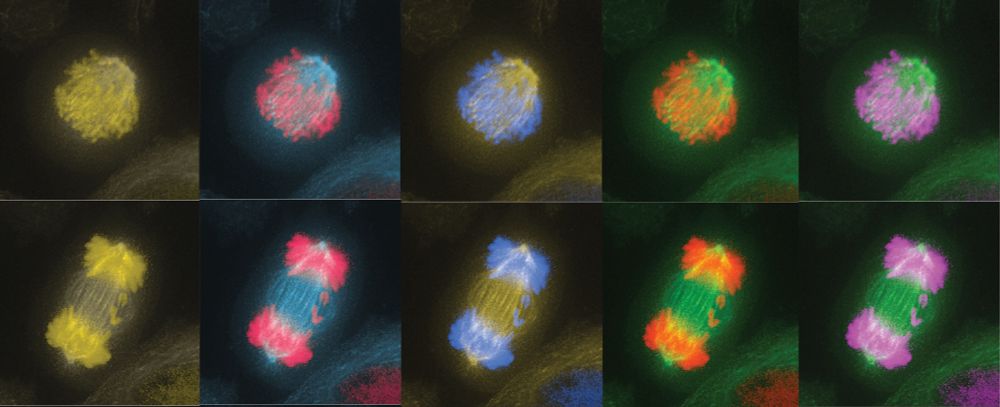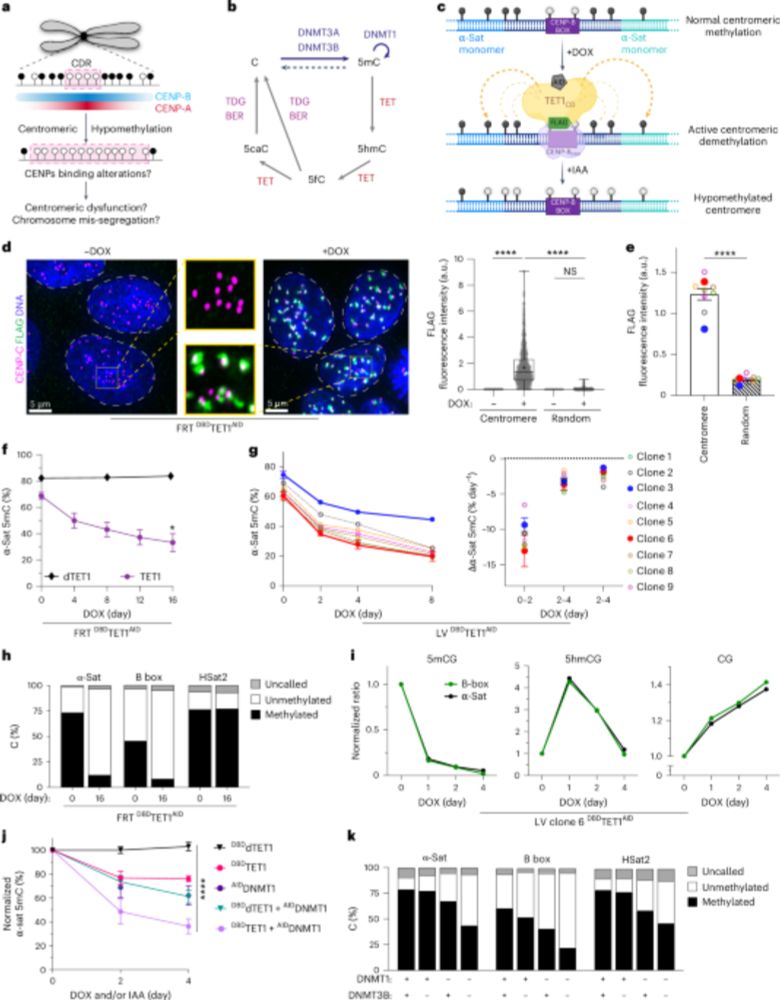
DNA methylation influences human centromere positioning and function - Nature Genetics
Genome-wide and targeted perturbation of DNA methylation at centromeres affects CENP-A positioning and centromere structure, resulting in aneuploidy and reduced cell viability.
#1 Centromeres are epigenetic loci defined by CENP-A, positioned in unmethylated DNA flanked by highly methylated regions. Our work, published in @natgenet.nature.com in collaboration with @naltemose.bsky.social investigates the role of DNAme at human centromeres www.nature.com/articles/s41...
04.09.2025 13:10 — 👍 85 🔁 36 💬 9 📌 1
Congrats Puck, super cool!
13.06.2025 17:19 — 👍 0 🔁 0 💬 1 📌 0

🧬 New tool to generate aneuploidies and analyse their impact on development.
The tool created by @milanlab.bsky.social helps better understand this phenomenon, which is the main cause of spontaneous miscarriage.
📰 Published in #CellGenomics by #IRBBarcelona
Read the news ➡️ shorturl.at/Ektif
👇
03.06.2025 15:22 — 👍 12 🔁 4 💬 1 📌 0
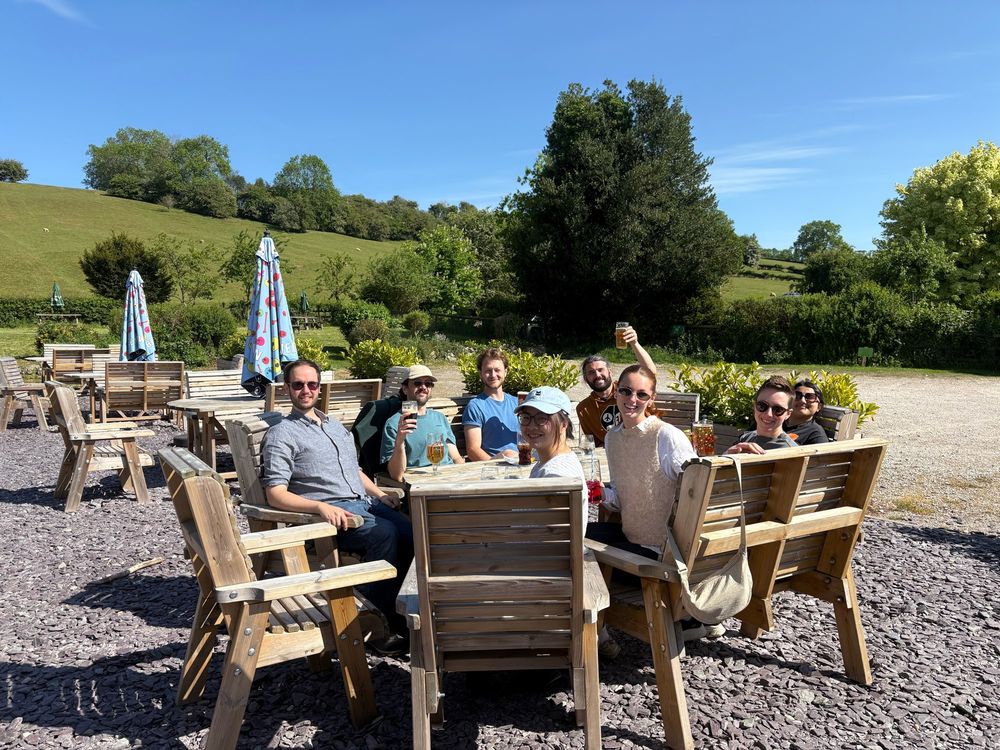
👋 Are you looking for a postdoc position? Do you think microtubules are fascinating? Then we might have the job for you! 2-year funded postdoc to join our lab!
👉 deadline 20/06
👇 check it out
www.godinholab.com
03.06.2025 08:57 — 👍 39 🔁 43 💬 0 📌 0
No brainer for talented bioinformaticians: great team, great science, great mentor! Apply!
21.05.2025 18:16 — 👍 3 🔁 0 💬 0 📌 0
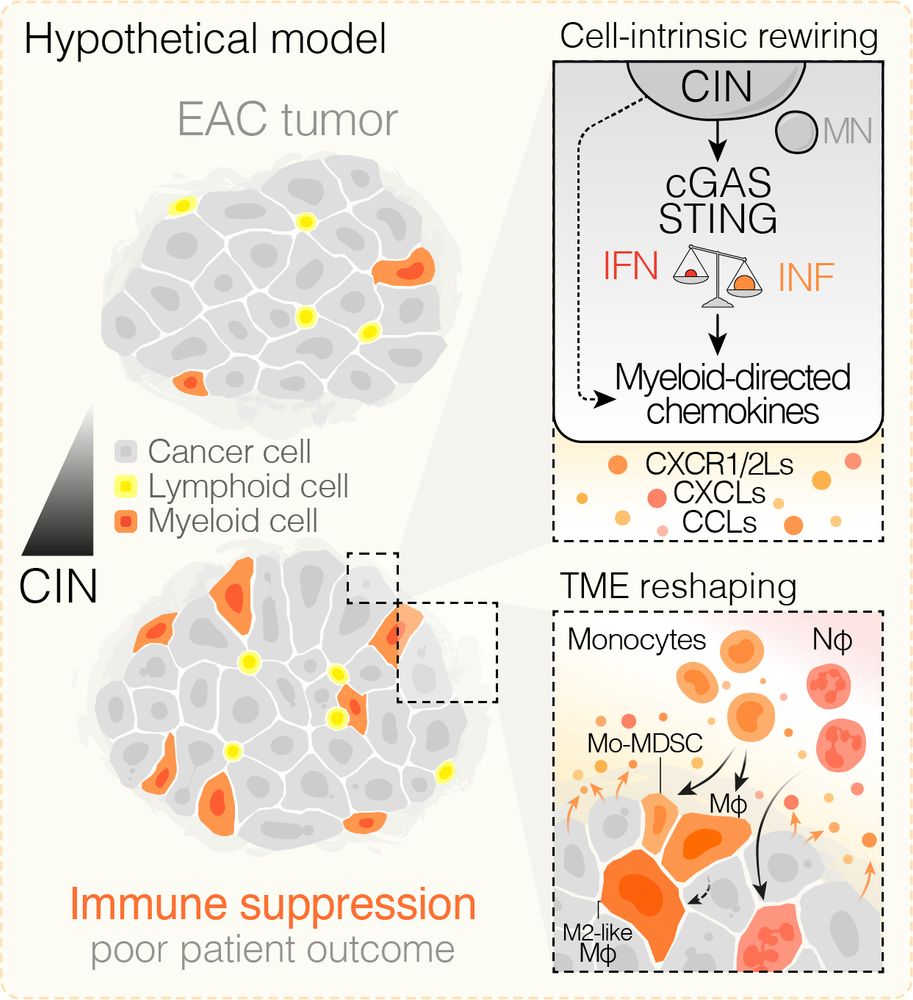
Model figure - in EAC cancers, as chromosomal instability (CIN) increases, we found that a CIN-driven cGAS-dependent axis drives myeloid directed chemokine expression and recruitment of tumor-favoring myeloid populations
Incoming - new preprint alert from the Parkes lab led by @brunobeernaert.bsky.social Full bluetutorial follows! 1/ 11 www.biorxiv.org/content/10.1...
12.05.2025 12:08 — 👍 47 🔁 19 💬 1 📌 2

The @embo.org #chromoploidy2025 is over. It was an amazing workshop organized by a perfect match of scientists and friends @mcclellandlab.bsky.social @bendavidlab.bsky.social @stesantaguida.bsky.social @foijer-lab.bsky.social, Elsa Logarinho, Caroline Audouin and myself
04.05.2025 15:33 — 👍 29 🔁 5 💬 2 📌 2
We now have a Twitter account, to reach people who are not on bluesky—and to help get them here.
If you still have a Twitter account please follow us there, and ask others to follow too.
x.com/altnih4science
08.03.2025 18:03 — 👍 88 🔁 14 💬 8 📌 1
Please check out our preprint where we find that mitotic transcription helps ensure ecDNA inheritance through chromosomal tethering:
www.biorxiv.org/content/10.1...
17.02.2025 11:04 — 👍 61 🔁 16 💬 2 📌 2
Dear all,
Postdoc positions are available to work on (1) the role of DNA strand break repair proteins during DNA replication and (2) the molecular/structural biology of XRCC1 protein complexes, as part of our work on genetic diseases & cancer. Contact me if interested: k.w.caldecott@sussex.ac.uk
10.02.2025 14:45 — 👍 37 🔁 36 💬 1 📌 0

A compendium of Amplification-Related Gain Of Sensitivity genes in human cancer
Nature Communications - In cancer, the impact on cellular fitness of copy-number gains affecting collaterally-amplified genes remains poorly understood compared to oncogenes. Here, the authors...
Supper happy to see the results of our longstanding collaboration in @naturecomms.bsky.social. We identify RBM14 as an ARGOS gene to modulate cGAS-STING signalling. Driven by @ms01.bsky.social and @vrendo.bsky.social with @bendavidlab.bsky.social and @rameenberoukhim.bsky.social. rdcu.be/d7Mky
28.01.2025 10:11 — 👍 17 🔁 4 💬 1 📌 1
New paper out! 🚨🥳
We thought that passenger gene amplifications can drive cancer vulnerabilities and show that RBM14 does so via cGAS-STING modulation 👇
@vrendo.bsky.social @bendavidlab.bsky.social @rameenberoukhim.bsky.social @foijer-lab.bsky.social
28.01.2025 09:49 — 👍 9 🔁 1 💬 0 📌 0
High CDC20 levels increase sensitivity of #cancer cells to MPS1 inhibitors.
-> www.embopress.org/doi/full/10....
High CDC20 expression promotes aneuploid cancer #cell sensitivity to #spindle assembly #checkpoint (SAC) inhibition by prolonging #metaphase and reducing mitotic errors.
22.01.2025 14:21 — 👍 8 🔁 3 💬 0 📌 0
CDC20 is a modulator of CIN, too much CDC20 promotes CIN, too little CDC20 decreases sensitivity to spindle checkpoint inhibitors. A very fruitful collaboration between the @bendavidlab.bsky.social and our lab. Check out our publication here: www.embopress.org/doi/full/10....
22.01.2025 18:49 — 👍 8 🔁 1 💬 0 📌 0
The Foijer lab is making a new start @bsky.app, moving away from X. We will continue to update you of our science news and share news of others as previously, and maybe even a bit more proactively :). Let's stay in touch!
14.01.2025 08:30 — 👍 11 🔁 0 💬 0 📌 0

🚨Our call is open NOW! Join our PhD program in Amsterdam. Deadline: Feb. 28. Apply here: bit.ly/3O4bOjq #PhD
07.01.2025 08:53 — 👍 15 🔁 9 💬 0 📌 0
The Max Planck Society consists of 84 institutes worldwide. Do you want to know what they are researching? Then follow the ever-growing #MaxPlanck Family on Bluesky, share this starter pack and help people join our community 🙏 Thanks a lot! 😊 go.bsky.app/2sYoWWN
08.01.2025 14:04 — 👍 71 🔁 35 💬 1 📌 5
Grow your profile on Bsky through strategic following and content management tools. Sign up at https://skylaunch.careeraccelerator.net/
Researcher @Jiri Lukas lab, Novo Nordisk Center for Protein Research, Genome Instability, CRISPR-Cas9, heritable consequences of DNA repair, single cell high content screening, greenify research 🌱
Cell cycle regulatory mechanisms in oocyte meiosis...... and finally trying to properly engage with bsky.
Burkard Lab | Holden Comprehensive Cancer Center | University of Iowa
Studying chromosomal instability, mitotic regulation & cancer evolution
Directed by Dr. Mark E. Burkard
Phd student in Foijer’s lab
Fascinated by the regulatory logic behind cell phenotype-environment interactions: How biological cells leverage the structural information encoded in protein molecules to morph themselves into shapes and sizes conferring environmental stress resistance.
Postoctoring in🇨🇭@ivanagasic.bsky.social Lab
Cell biologist #Cytoskeleton & #Microscopy enthusiast 🔬🧫
Final year MRC-DTP PhD student in the McClelland lab at Barts Cancer Institute studying how chromosomal instability impacts cGAS-STING signalling 🧬
Postdoctoral researcher in the Boulton Lab 🧬 The Francis Crick Institute, London, UK▪️interest in genome stability, chromatin, cancer 🧫 👩🔬 EMBO and MSCA fellow
Postdoctoral Training Fellow @thedownslab.bsky.social @icr.ac.uk
The Downs Lab website: thedownslab.org
Professor, University of Westminster. Genetics, Genomics and Microscopy. Genome-environment interactions and human health.
Assistant Professor at Vanderbilt University Medical Center. Interested in mechanisms driving genomic instability, renal cell carcinoma, and epigenetics in cancer.
Group Leader @i3S Porto; Aging and Aneuploidy Lab; Targeting #GenomicInstability in #Aging; #Rejuvenation; #Longevity; #Progeria and #Down Syndromes
Head of the Dept. of Cell signalling & Genome stability at Heidelberg
University. Ikerbasque Research Professor at UPV/EHU https://acebronlab.org (Comments my own)
@fau.de
Excited about Cell division, Cytoskeleton dynamics, Microscopy, C. elegans, photopharmacology 💡 ♥️😎🐛🔬
Chief Editor of Nature Biomedical Engineering. Ph.D. Previously at Nature Methods. @rita_strack on the place formerly known as twitter.
Cell cycle, mitosis, nuclear pores, ubiquitin, disease.
Group leader @igbmc.bsky.social, research director DR1 @cnrs.fr, Strasbourg, France.
Alumna @JagiellonskiUni.bsky.social @impvienna.bsky.social @ethz.ch
Hobby cook and occasional runner.
The CNIO Bioinformatics Unit (BU) is a team of bioinformaticians applying computational methodologies to perform genome analyses of cancer patients' data.
CNIO, Madrid.
https://bioinformatics.cnio.es/


